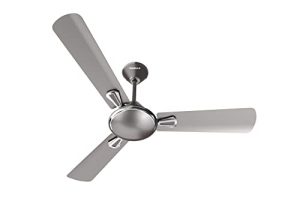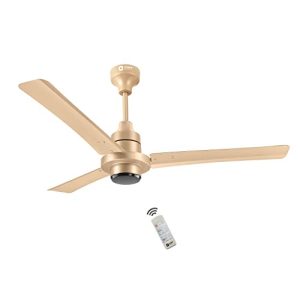
4 Common Myths About Workers’ Compensation Laws in the United States
Worker’s compensation is a basic aspect of labor laws present in the United States that seeks to cover employees who are injured or sick during or arising out of the course of work. However, despite the essence of this policy, there are plenty of workers’ compensation myths that distract from reality. In this article, we’ll break down the facts, debunk common myths, and explain how the system truly works.
What is Workers’ Compensation?
Table of Contents
Workers’ compensation is known as “workers’ comp,” among other things. This is a government regulated type of insurance that pays benefits to workers injured or become ill as a result of employment. These include the reimbursement of medical costs, subsidization of the employee’s income lost during that time, and compensation for therapy services so that the employees can recover. Furthermore, employers are shielded from any compensation that arises from employee work injury lawsuits.
Key Workers’ Compensation Facts
- Workers’ compensation is a no-fault system, meaning employees do not need to prove their employer was negligent to receive benefits.
- Each state has its own workers’ compensation laws, meaning the specifics of coverage and benefits can vary.
- Most workers, except for independent contractors and certain types of employees, are covered under workers’ compensation laws.
Debunking Common Workers’ Compensation Myths
There are many misconceptions about how workers’ compensation works. Let’s clear up some of the most common workers comp myths:
Myth 1: You Can’t Get Workers’ Compensation If the Accident Was Your Fault
Truth: The workers’ compensation system is also a no-fault system, which implies that you can get some benefits irrespective of whether or not you were at fault for the accident. So long as the injury was sustained in the course of performing the said work, it is likely that compensation will be entitled.
Myth 2: You Can Be Fired for Filing a Workers’ Comp Claim
Truth: It is not permissible for the employer to take revenge on the employee for filing a workers’ compensation claim. In cases of dismissal or any other kind of retaliation after filing a case, there is an opportunity to take legal measures.
Myth 3: Workers’ Compensation Only Covers Major Injuries
Truth: Workers’ compensation applies to many injuries and diseases and is not limited to only major or life-threatening diseases. The list also includes more common problems, such as work-related overuse syndromes, including carpal tunnel syndrome, or more chronic ailments, such as occupational lung disease.
Myth 4: Workers’ Comp Covers All Medical Bills
Truth: Even though workers’ compensation should take care of the majority of such medical bills, there are some limits. For example, you may have to go to a designated or specific physician for your bills to be covered.
Common Workers’ Compensation Misconceptions
Aside from the tales that exist out there, there are even more workers’ compensation myths that make employees make wrong decisions on whether to file claims or not.
Misconception 1: Independent Contractors Are Always Ineligible for Workers’ Comp
Truth: It is often misunderstood that independent contractors are not entitled to benefits such as workers’ compensation. Every so often, there is a problem in defining the terms “independent contractor” and “employee”. Employing contractors, however, pays certain workers under them, and the law defines them as employees as well.
Misconception 2: You Can Only File a Workers’ Comp Claim for Physical Injuries
Truth: Workers’ compensation also helps when employees become sick from prolonged exposure to injury-causing elements such as toxic dusts, loud noise, and stressful environments, or mental health related potentially hazardous workplace factors, such as workplace stress, incurred injuries or post-traumatic stress disorder.
The Workers’ Compensation Claim Process
It is important to understand workers’ compensation facts and the claim process in order to be able to collect the benefits. Here’s how the procedure normally operates.
- Report the Injury: You must report your injury or illness to your employer as soon as possible. Each state has different deadlines, but failing to notify your employer within the required timeframe could jeopardize your claim.
- Seek Medical Attention: Depending on state laws, you may be required to visit a doctor approved by your employer’s insurance. Make sure you receive all necessary treatment and keep records of your medical visits.
- File a Workers’ Compensation Claim: Your employer should provide you with the necessary forms to file a claim. Submit these promptly and accurately to ensure smooth processing.
- Receive Benefits: Once your claim is approved, you’ll begin receiving benefits. These can include medical bill coverage, wage replacement, and disability payments.
Workers’ Compensation Denials: What to Do?
Even if your claim for workers’ compensation benefits gets denied, you still have other recourse. You have a right to appeal the determination, usually to the state’s workers’ compensation board. A workers’ compensation attorney may assist you in the appeal and therefore help you win the case.
Why Do Claims Get Denied?
- Lack of evidence: If there’s insufficient proof that your injury was work-related, your claim could be denied.
- Missed deadlines: Filing too late could result in disqualification.
- Pre-existing conditions: If the insurer believes your injury was related to a pre-existing condition, they may deny the claim.
Finding a Workers’ Compensation Lawyer
It can be difficult when you have a workers compensation claim denial in light of the complexity of the laws surrounding workers compensation laws. In such cases, the worker’s compensation lawyers will be of help in mostly explaining the law, making appeals, and getting the benefits available to the workers.
Conclusion
Knowing the facts surrounding workers’ compensation and clearing misinterpretations about the same is important for anyone, who has suffered a work injury or work-related sickness. Making sure that they understand their rights and the way the claim process works will ensure such individuals receive the benefits that they need. A seasoned workers compensation attorney can assist you with a claim process that has previously been refused or provide help if you simply feel intimidated by the entire process.
















[…] people do not realize that umbrella insurance extends even when you are outside the United States. For example, if the policyholder finds himself in legal trouble while traveling or accidentally […]